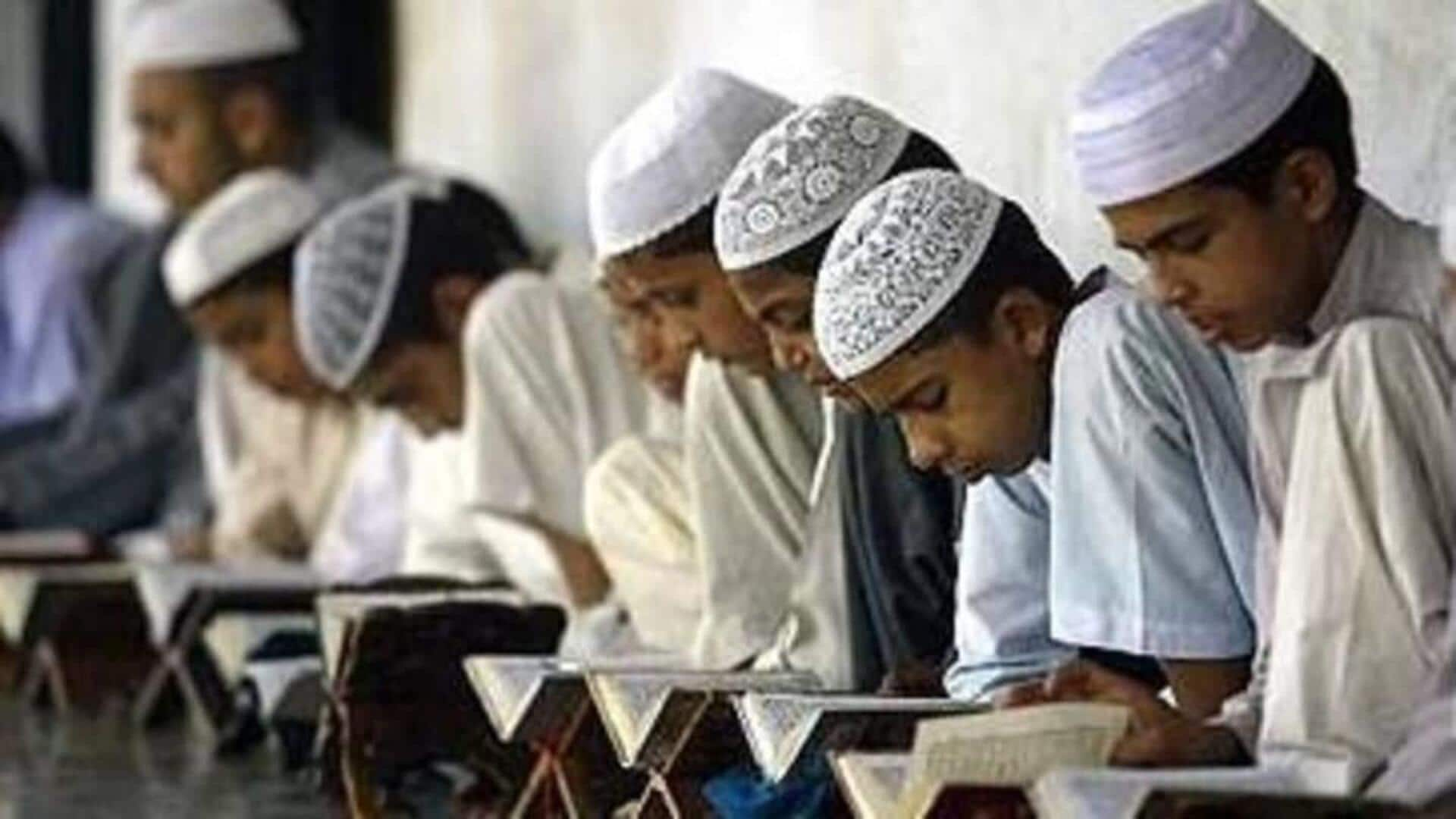
Madrassas violate right to education, promote 'supremacy of Islam': NCPCR
What's the story
The National Commission for Protection of Child Rights (NCPCR) has strongly disapproved of the madrasa education system in its submissions before the Supreme Court. The commission asserted that these institutions violate children's fundamental right to education and operate against constitutional mandates and the Right to Education (RTE) Act. This observation was made while filing an affidavit challenging a judgment by Allahabad High Court that struck down the UP Board of Madarsa Education Act 2004 in March.
Content issues
NCPCR raises concerns over madrasa education content
The NCPCR expressed concerns over the content of some madrasa textbooks, particularly those promoting "supremacy of Islam." This is concerning as several non-Muslim children are also enrolled in madrasas in states like Bihar, Madhya Pradesh, West Bengal, Uttar Pradesh and Uttarakhand, it said. The submission also states that the Taliban's ideologies have been shaped by teachings from Darul Uloom Deoband Madrasa in Uttar Pradesh.
Children's rights
NCPCR highlights children's rights in madrasas
The NCPCR emphasized that children studying in these institutions are still entitled to education under Article 21A of the Constitution although madrasas are exempt from RTE Act provisions. The commission stated that depriving children in madrasas of formal education undermines their fundamental right to equality before law. It described Uttar Pradesh Madarsa Education Act as "depriving tool," arguing it strips children in minority institutions of their right to elementary education and related entitlements like midday meals, uniforms, and trained teachers.
Religious focus
NCPCR criticizes religious focus of madrasa education
"A school is defined under Section 2(n) of the RTE Act, 2009, which means any recognised school imparting elementary education. A madrassa being out of this definition has no right to compel children or their families to receive madrassa education," it argued. It stated that the majority of madrassas fail to give pupils with a holistic environment, such as preparing social gatherings or extracurricular activities for "experiential learning."
Court's stance
Supreme Court's stance on madrasa education
In a relief for madrassas, on April 5, a Supreme Court bench led by Chief Justice of India (CJI) Dhananjaya Y Chandrachud stayed the high court's decision. The court emphasized that the issue was not with Madarsa Act itself but with ensuring students receive quality education. However, it refrained from issuing any direction to Uttar Pradesh government for continuing state aid to madrasas, which is claimed to be around ₹1,098 crore annually.